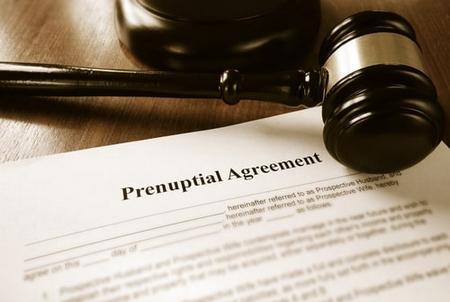Recent Blog Posts
Problems With Divorcing Close to Retirement
 Sometimes, the life you envisioned with your spouse doesn’t always go as planned. For one reason or another, you may have come to the conclusion that the marriage just isn’t sustainable, and that there are irreconcilable differences that keep it from working. Some couples have this realization just a few years before retirement, which can complicate the divorce process.
Sometimes, the life you envisioned with your spouse doesn’t always go as planned. For one reason or another, you may have come to the conclusion that the marriage just isn’t sustainable, and that there are irreconcilable differences that keep it from working. Some couples have this realization just a few years before retirement, which can complicate the divorce process.
At Goostree Law Group, our Kendall County, IL gray divorce lawyers have decades of legal experience, which has given us deep insights into how to handle complicated cases. We will review your situation and advise you of how to avoid risk as you navigate the end of your marriage nearing retirement age.
Am I On the Hook for My Spouse’s Debt if We Get Divorced?
 If you are getting divorced, there are probably a thousand questions running through your head at any moment. Divorce can have major personal and financial implications. One issue many people worry about is what happens to debts in a divorce and who will ultimately be liable for debts accumulated during a marriage.
If you are getting divorced, there are probably a thousand questions running through your head at any moment. Divorce can have major personal and financial implications. One issue many people worry about is what happens to debts in a divorce and who will ultimately be liable for debts accumulated during a marriage.
The answers to these questions vary. An experienced DuPage County, IL divorce lawyer can help you understand your financial rights and responsibilities during your divorce and the best way to protect your financial interests. At Goostree Law Group, we have garnered over 100 5-star reviews, so you can trust us to approach your case with a sound strategy.
Six Steps to Take Now If You Know Divorce Is On The Horizon
 Marriages end for countless reasons. Some gradually break down over the course of years or decades. Other marriages end abruptly because a spouse has an affair or violates the other spouse’s trust. Sometimes, spouses simply fall out of love. If your marriage has reached the point of no return and divorce is imminent, there are things you can do now to make the divorce process easier.
Marriages end for countless reasons. Some gradually break down over the course of years or decades. Other marriages end abruptly because a spouse has an affair or violates the other spouse’s trust. Sometimes, spouses simply fall out of love. If your marriage has reached the point of no return and divorce is imminent, there are things you can do now to make the divorce process easier.
At Goostree Law Group, we have decades of legal experience helping spouses through the divorce process. We can represent you in a contested or uncontested divorce, adapting our strategy to the level of conflict between you and your spouse. Even if you have not initiated the divorce process yet, our DuPage County, IL family law attorneys can advise you on what to do and how to move forward.
Four Reasons Why an Illinois Prenup Might Be Unenforceable
 A prenuptial agreement (prenup) is a premarital contract regarding a couple’s property and assets, including how they will be handled in the event of a divorce. To be legally enforceable in our state, a prenuptial agreement must conform to the legal requirements contained in the Illinois Uniform Premarital Agreement Act. Even a seemingly small error could render a premarital agreement partially or completely unenforceable.
A prenuptial agreement (prenup) is a premarital contract regarding a couple’s property and assets, including how they will be handled in the event of a divorce. To be legally enforceable in our state, a prenuptial agreement must conform to the legal requirements contained in the Illinois Uniform Premarital Agreement Act. Even a seemingly small error could render a premarital agreement partially or completely unenforceable.
At Goostree Law Group, we can defend the validity of a prenup in court, or attack an unlawful agreement. Our Kane County, IL family law attorneys draw on decades of legal experience, giving us clarity in all matters of divorce.
5 Types of Valuable Assets to Address in a High Net Worth Divorce
 Whenever a couple chooses to end their marriage, they will need to address multiple legal and financial issues. High net worth divorce cases can be very complex, especially when it comes to the division of marital property. These couples often own multiple types of high-value assets, and as they determine how to divide these assets fairly, they will also need to understand the financial implications of the decisions they make.
Whenever a couple chooses to end their marriage, they will need to address multiple legal and financial issues. High net worth divorce cases can be very complex, especially when it comes to the division of marital property. These couples often own multiple types of high-value assets, and as they determine how to divide these assets fairly, they will also need to understand the financial implications of the decisions they make.
At Goostree Law Group, our St. Charles, IL divorce lawyers have received over 100 5-star reviews for our detail-oriented, client-first approach. We can help you take inventory of your assets and advocate for a favorable split of property on your behalf.
Five Valuable Assets to Look Out For in a 2026 Divorce
During a high net worth divorce, couples need a complete understanding of all of the assets they own. Spouses need to keep track not only of marital assets acquired during their marriage, but separate property acquired before the marriage as well. Assets that these couples need to address may include:
What Happens to a House if Only One Spouse’s Name Is on the Deed?
 Your home may be one of your most treasured assets in your marriage. However, you may wonder what will become of it in your divorce if your name isn’t on the deed. The answer is complicated, and may hinge on a number of different factors. The important thing to keep in mind is that the name on the deed matters less than when the house was acquired.
Your home may be one of your most treasured assets in your marriage. However, you may wonder what will become of it in your divorce if your name isn’t on the deed. The answer is complicated, and may hinge on a number of different factors. The important thing to keep in mind is that the name on the deed matters less than when the house was acquired.
A Yorkville, IL divorce lawyer can clear up your questions and help protect your interests in the division of property. At Goostree Law Group, our attorneys have been recognized with numerous awards, including recognition as Super Lawyers and among the "10 Best" for Client Satisfaction by the American Institute of Family Law Attorneys, and we are ready to offer tailored legal guidance.
What Makes a Home Marital or Separate Property in Illinois?
In Illinois, the deed is an important document, but it is not the sole deciding factor in ownership. Just because only one spouse’s name is on the deed does not automatically mean the house is "off-limits" in asset division.
4 Common Questions About Parenting Time in Illinois
 When divorcing spouses share children, the divorce process becomes much more complicated. In addition to financial issues like property division, the couple must also address child-related concerns like how to allocate child custody and child support. A DuPage County, IL family law attorney can provide you with valuable insights, addressing any questions you may have.
When divorcing spouses share children, the divorce process becomes much more complicated. In addition to financial issues like property division, the couple must also address child-related concerns like how to allocate child custody and child support. A DuPage County, IL family law attorney can provide you with valuable insights, addressing any questions you may have.
At Goostree Law Group, we know how overwhelming the divorce process can be for parents. When you work with our firm, we will do everything we can to reduce the stress and uncertainty on your end, drawing upon decades of legal experience. Attorney Tricia Goostree has helped numerous families in difficult family law cases, including highly contested child custody matters.
How is Parenting Time Different From Child Custody?
One of the most complicated parts of a divorce is navigating the sea of confusing legal terms and language. In 2026, Illinois law no longer uses the term child custody. Instead, child-related matters are broken down into two parts: decision-making responsibility and parenting time. Decision-making responsibility gives a parent the ability to make important choices on the child's behalf. On the other hand, parenting time refers to the day-to-day care for the child. The parents will include their parenting time schedule in their parenting plan and submit it to the court for approval.
Can Marital Misconduct Affect My Divorce in Illinois?
 With a few exceptions, divorce courts in Illinois generally do not factor in misconduct when deciding how assets should be divided or making decisions about alimony. A St. Charles, IL divorce attorney can help you understand how your specific divorce might be affected.
With a few exceptions, divorce courts in Illinois generally do not factor in misconduct when deciding how assets should be divided or making decisions about alimony. A St. Charles, IL divorce attorney can help you understand how your specific divorce might be affected.
Marital misconduct can be a touchy subject to broach in your divorce. At Goostree Law Group, we are experienced at handling high-stress divorces between spouses. Our careful, client-focused approach has helped us garner a reputation for effective counsel, as we have received over 100 5-star reviews for our successes in and outside of the courtroom.
What is Marital Misconduct?
Marital misconduct is behavior that endangers or undermines the marriage. It means that a spouse behaves in a way that contrasts with how a person is expected to act in a marriage. Common forms of marital misconduct include:
My Spouse is Accusing Me of Child Abuse in Our Divorce to Get Custody. What Can I Do?
 As a parent, being accused of intentionally harming your child can be shocking and deeply offensive. Sadly, some parents will do whatever it takes to gain an advantage in divorce or child custody proceedings, even if it means fabricating allegations of child abuse. Psychiatric Times reports that anywhere from two to 35 percent of child custody cases involve allegations of abuse. This highlights a disturbing trend of people using false allegations of abuse as a tactic to secure more or sole custody.
As a parent, being accused of intentionally harming your child can be shocking and deeply offensive. Sadly, some parents will do whatever it takes to gain an advantage in divorce or child custody proceedings, even if it means fabricating allegations of child abuse. Psychiatric Times reports that anywhere from two to 35 percent of child custody cases involve allegations of abuse. This highlights a disturbing trend of people using false allegations of abuse as a tactic to secure more or sole custody.
At Goostree Law Group, our Wheaton, IL child custody attorneys can help you push back against a false narrative. Attorney Tricia Goostree has over 20 years of experience in family law, including experience in contested custody cases.
Who Pays Credit Card Debt if We Get Divorced?
 As Americans struggle with inflation, supply chain issues, and rising prices, many are turning to credit cards to make ends meet. Credit cards can be a useful financial tool. However, credit card debt can quickly spiral out of control. According to a study by WalletHub, the average U.S. household has around $11,000 in credit card debt. When a household comes apart, that debt will have to be addressed one way or another.
As Americans struggle with inflation, supply chain issues, and rising prices, many are turning to credit cards to make ends meet. Credit cards can be a useful financial tool. However, credit card debt can quickly spiral out of control. According to a study by WalletHub, the average U.S. household has around $11,000 in credit card debt. When a household comes apart, that debt will have to be addressed one way or another.
If you are getting divorced, you may have many questions and concerns about credit card debt. How is credit card debt divided between spouses? Do we have to pay off our credit cards before we can divorce? What if a spouse promises to pay credit card debt and fails to do so? At Goostree Law Group, our St. Charles, IL divorce attorneys can help you address these questions and much more. We have garnered over 100 5-star reviews, so you can trust us to provide you with legal advice and guidance unique to your situation.












